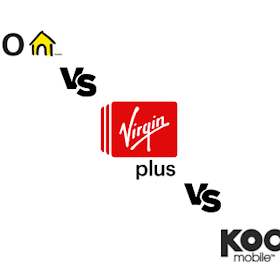There was a time when looking for love online was considered the last resort of the desperate and dateless. How things change - not only are more singles finding relationships through online dating, but a new study suggests that couples who originally met via the world wide web may be more likely to go the distance.
Research published in the peer-reviewed Proceedings of the National Academy of Sciences shows that over one-third of newlyweds are likely to have met online – and indicates that relationships sparked in cyberspace may be more satisfying that those formed in the ‘real world’.
The survey questioned almost 20,000 Americans who married between 2005 and 2012. Of these, 35% met online – 45% of these through dating websites, 20% through social networking, 10% in chatrooms and the rest through other online forums, such as gaming.
Respondents over 30 were more likely to have met their spouse through a dating website, with younger couples preferring social networking.
In comparison, meeting through work and mutual friends accounted for 20% of all couples surveyed, and 10% found each other at social events.
The interesting conclusion reached by the study is that couples who found each other online were less likely to divorce than those who met offline. 7.6% of the relationships that formed ‘in person’ ended in divorce, but only 5.9% of marriages from online meetings dissolved.
The results of the study were statistically controlled for demographic factors such as income, education and the time of the marriage.
Interestingly, there's a link between income and how couples meet - 41% of study respondents earning over $100,000 annually met online, but only 3% of those in the lowest income bracket.
What works about online dating?
It’s premature to say that online dating leads to lasting relationships; the differences in divorce rates aren’t astronomical. But survey responses indicated that couples who met online reported increased marital satisfaction when compared to those who met in bars (although a similar increase in happiness applied to couples who met through mutual friends, school or church - so maybe the lesson is that bars aren't the best place to find someone special).
Researchers have considered that there may be something specific to the personalities of people who use online dating, which may make them better equipped to deal with the reality of a committed relationship. However, it may also be that Internet daters are usually more serious about finding a partner, and may be at a stage in life where they are eager to settle down.
Studies also suggest that people are more willing to disclose personal information about themselves to people before they meet face to face, and the nature of dating websites themselves give users a chance to screen and evaluate prospects for red flags and 'deal breakers' before initiating contact.
And what doesn't?
There are still some fairly obvious disadvantages to meeting people online. It’s easy to dismiss someone when you have dozens of other suitors just waiting to be messaged, and users often instantly reject prospects based on one or two details gleaned from their profile. It’s also hard to gauge the potential chemistry you’ll have with someone from just a headshot on a website and a 300-word ‘About Me’ essay.
And of course, people aren't always who they claim to be - whether they lie about their age, weight or are straight-up fraudsters looking to scam lonely singles for profit or amusement.
The study has already raised eyebrows; it was commissioned by dating website eHarmony. However, the researchers involved have freely admitted the potential conflict of interest and nothing about the data indicates a bias towards the website. There's no evidence in the study to suggest that eHarmony’s famous ‘scientific algorithms’ are a better method of matchmaking than simply picking the person with the best-looking profile pictures.
In fact, researchers couldn't find a dating site that was better at producing lasting relationships than its competitors; factoring in the size of each site's user base, all online dating services are relatively equal.
The way of the future
Estimates suggest at least 40% of American singles have tried online dating. It's become a $1.049 billion-a-year industry worldwide, and mobile dating is expected to reach $1.3 billion in revenue this year.
The proliferation of dating sites combined with the popularity of smartphones has also led to increased use of dating apps, including mobile versions of sites such as Chemistry and Match.com, and more 'specialized' services such as Grindr.
Overall, if you've been looking for love in all the wrong places, online dating is definitely worth a try. And the good news is, with roughly one-third of newlyweds meeting online nowadays, it's no longer considered socially unacceptable - rather, a proactive and convenient way of increasing your options.
With the line between our social lives and digital lives virtually non-existent, it may be time to get online before all the good ones are taken.
Image credit: joeywan at Flickr
Related Articles
Find Better Phones and Plans
Hundreds of cell phone plans unpacked. All the facts. No surprises.









































